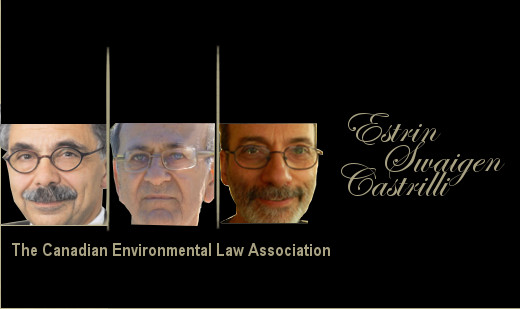
The renowned Canadian Environmental Law Association (CELA) was established in 1970 to use existing laws to protect the environment and to advocate environmental law reforms. Today, CELA is a non-profit organization funded by Legal Aid Ontario.
The year 1970 was pivotal for the slow evolving history of environmental regulation in Ontario. That was when a group of environmental activists and law professors, young lawyers and articling students gathered in an unused laboratory on the campus of the University of Toronto to form the Environmental Law Association (the "Canadian" would be added a few years later).
The goal was to create a a public interest law clinic that could handle the heavy legal slogging for the newly-emerging environmental activists and groups fighting to control the most egregious polluters, safeguard air and water quality, and preserve natural areas.
[We had the idea that we] could use environmental laws to prevent pollution, to improve society and, to the extent that we had any environmental laws in those days, to try to enforce them.In those early, formative days of environmental law, long before provincial and federal governments would vow to get tough on polluters, CELA undertook the first prosecutions for noise pollution in Ontario, pushed for public consultation on the first certificates of approval, and rallied support for broader, more inclusive environmental legislation. CELA also attracted a roster of prominent lawyers from private practice, including a future member of the Supreme Court, who would volunteer to argue groundbreaking cases. Over the years, CELA has been instrumental in the development and passage of Ontario's Environmental Assessment Act, the Safe Drinking Water Act, and the Environmental Bill of Rights. The association was also known for fighting and (mostly) winning a series of precedent-setting court cases. CELA lawyers
- defended the Hudson, Quebec, municipal bylaw outlawing the use of cosmetic pesticides on private property
- won a ruling in the Supreme Court that higher life forms cannot be patented in Canada
- opposed both the proposed Adams Mine mega-dump and plans by Lafarge Canada to burn tires and other waste in an Ontario cement plant.
